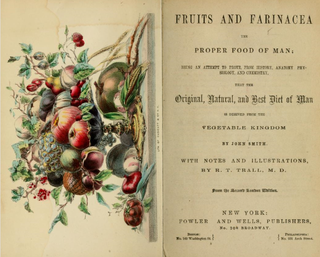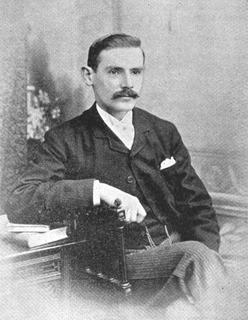
Caligula, formally known as Gaius, was the third Roman emperor, ruling from AD 37 to 41. The son of the popular Roman general Germanicus and Augustus' granddaughter Agrippina the Elder, Caligula was born into the first ruling family of the Roman Empire, conventionally known as the Julio-Claudian dynasty. Germanicus' uncle and adoptive father, Tiberius, succeeded Augustus as emperor of Rome in AD 14.
Artifact, or artefact, may refer to:
Intervention may refer to:

A ghostwriter is hired to write literary or journalistic works, speeches, or other texts that are officially credited to another person as the author. Celebrities, executives, participants in timely news stories, and political leaders often hire ghostwriters to draft or edit autobiographies, memoirs, magazine articles, or other written material. Memoir ghostwriters often pride themselves in "disappearing" when impersonating others since such disappearance signals the quality of their craftsmanship. In music, ghostwriters are often used to write songs, lyrics, and instrumental pieces. Screenplay authors can also use ghostwriters to either edit or rewrite their scripts to improve them. Usually, there is a confidentiality clause in the contract between the ghostwriter and the credited author that obligates the former to remain anonymous. Sometimes the ghostwriter is acknowledged by the author or publisher for his or her writing services, euphemistically called a "researcher" or "research assistant", but often the ghostwriter is not credited.

The Civil War is a 1990 American television documentary miniseries created by Ken Burns about the American Civil War. It was the first broadcast to air on PBS for five consecutive nights, from September 23 to 27, 1990.
A night shift is either a group of workers night working, or the period in which they work.
Stitch, Stitches or Stitched may refer to:

The Wellcome Library is founded on the collection formed by Sir Henry Wellcome (1853–1936), whose personal wealth allowed him to create one of the most ambitious collections of the 20th century. Henry Wellcome's interest was the history of medicine in a broad sense and included subjects such as alchemy or witchcraft, but also anthropology and ethnography. Since Henry Wellcome’s death in 1936, the Wellcome Trust has been responsible for maintaining the Library's collection and funding its acquisitions. The library is free and open to the public.
A journal, from the Old French journal, may refer to:

Laurel Thatcher Ulrich is a Pulitzer Prize-winning American historian specializing in early America and the history of women, and a professor at Harvard University. Her approach to history has been described as a tribute to "the silent work of ordinary people"—an approach that, in her words, aims to "show the interconnection between public events and private experience." Ulrich has also been a MacArthur Genius Grant recipient. Her most famous book, “A Midwife’s Tale,” was later the basis for a PBS documentary film.

The Society of Architectural Historians (SAH) is an international not-for-profit organization that promotes the study and preservation of the built environment worldwide. Based in Chicago in the United States, the Society’s 3,500 members include architectural historians, architects, landscape architects, preservationists, students, professionals in allied fields and the interested public.

Common Threads: Stories from the Quilt is a 1989 American documentary film that tells the story of the NAMES Project AIDS Memorial Quilt. Narrated by Dustin Hoffman with a musical score written and performed by Bobby McFerrin, the film focuses on several people who are represented by panels in the Quilt, combining personal reminiscences with archive footage of the subjects, along with footage of various politicians, health professionals and other people with AIDS. Each section of the film is punctuated with statistics detailing the number of Americans diagnosed with and dead of AIDS through the early years of the epidemic. The film ends with the first display of the complete Quilt at the National Mall in Washington, D.C. during the 1987 Second National March on Washington for Lesbian and Gay Rights.

History is the study of the past. Events occurring before the invention of writing systems are considered prehistory. "History" is an umbrella term that relates to past events as well as the memory, discovery, collection, organization, presentation, and interpretation of information about these events. Historians place the past in context using historical sources such as written documents, oral accounts, ecological markers, and material objects including art and artifacts.

Americanization is the influence American culture and business has on other countries outside the United States, including their media, cuisine, business practices, popular culture, technology or political techniques. The term has been used since at least 1907. While not necessarily a pejorative term, it is most often used by critics in the target country who are against the influences.
Trauma most often refers to:
The History of Modern Biomedicine Research Group (HoMBRG) is an academic organisation specialising in recording and publishing the oral history of twentieth and twenty-first century biomedicine. It was established in 1990 as the Wellcome Trust's History of Twentieth Century Medicine Group, and reconstituted in October 2010 as part of the School of History at Queen Mary University of London.
Medical History is an open-access peer-reviewed journal of history of medicine. It was established in 1957. The journal is edited by Sanjoy Bhattacharya and is published by Cambridge University Press.
The American Association for the History of Medicine is an American professional association dedicated to the study of medical history. It is the largest society dedicated to medical history in the United States, and the oldest such organization in North America. It was established in 1925 as the American Section of the International Society for the History of Medicine, and obtained its current name in 1958. Its first president was Fielding Hudson Garrison. Its official journal is the Bulletin of the History of Medicine, which is published quarterly. Its current membership is in excess of 1,000 people.

Fruits and Farinacea: The Proper Food of Man, Being an Attempt to Prove, from History, Anatomy, Physiology, and Chemistry, that the Original, Natural, and Best Diet of Man is Derived from the Vegetable Kingdom is a vegetarian book written by John Smith of Malton, first published in 1845.

Charles Walter Forward was a British animal rights activist and historian of vegetarianism.










